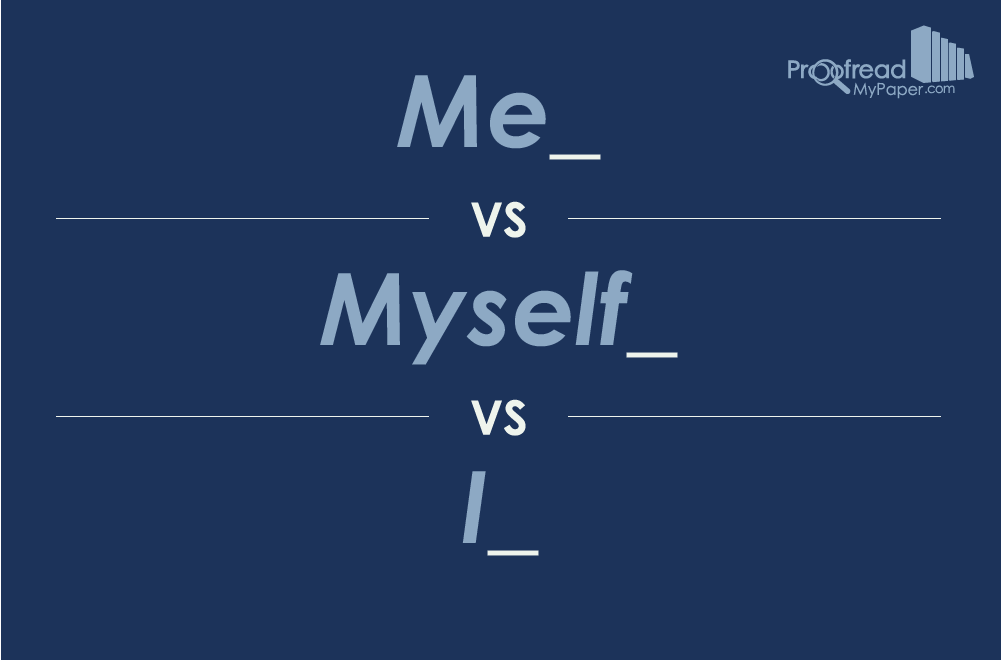Unlike Me, Myself and Irene, the terrible Jim Carrey movie, the words “me,” “myself” and “I” all have important roles to play in the modern world.
Specifically, “me,” “myself” and “I” are all singular first person pronouns (i.e., words we use when referring to ourselves). However, people often get confused about these terms, especially the word “myself,” so we’ve prepared this guide on how they should be used.
I (Subject) and Me (Object)
The difference between “I” and “me” is that “I” is refers to the subject of a sentence and “me” is used when the speaker is the object of a sentence.
In a complete sentence, the subject acts upon an object. For instance:
Jim punched Pete.
Here, “Jim” is the subject, “punched” is the verb (i.e., the action performed), and “Pete” is the object of the sentence.
If we were going to use a first person pronoun in the same sentence, we would have to use “I” in place of the subject:
I punched Pete. ✓
Or “me” in place of the object:
Jim punched me. ✓
If we tried to do this the other way round, the sentence would be grammatically incorrect:
Me punched Pete. ✗
Jim punched I. ✗
This is why it’s essential to remember the difference between the subject and object of a sentence.
Myself (Reflexive Object or Emphasis)
The primary use of “myself” is to refer to yourself reflexively, such as when the speaker refers back to themselves as an object in a sentence:
I can see myself achieving great things in Hollywood.
Find this useful?
Subscribe to our newsletter and get writing tips from our editors straight to your inbox.
In the example above, the speaker (the subject of the sentence) is talking about themselves, so they are the object of the sentence too. The use of “myself” indicates this reflexivity.
Another use of “myself” is to emphasize one’s achievement or involvement in something:
I did all the hard work myself!
In this example, using “myself” stresses that the individual effort of the person speaking.
A Common Mistake
The most frequent mistake made regarding “myself” is to use it in place of “I” or “me” simply because it sounds more formal. Typically, this occurs when a sentence mentions more than one person:
Jim and myself are going to the movies. ✗
If you hear from Pete, let myself and Jim know. ✗
Neither of these sentences are reflexive. In the first, “myself” is used in place of the subject. In the second, it’s used in place of the object. As such, they should read:
Jim and I are going to the movies. ✓
If you hear from Pete, let me and Jim know. ✓
To test whether “myself” is correct in a sentence like this, it can help to rephrase it without the second person. For example, both of the following sound obviously wrong:
Myself is going to the movies. ✗
If you hear from Pete, let myself know. ✗
We can therefore tell that we should use “I” and “me” respectively in these sentences, not “myself.”
